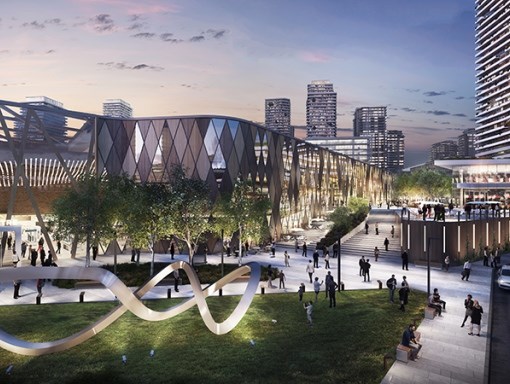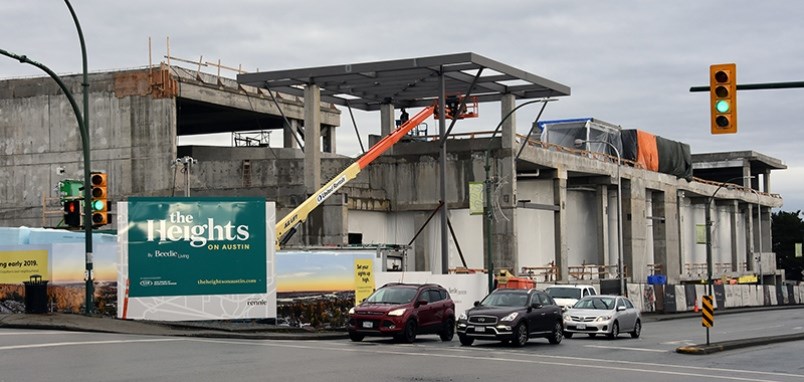Coquitlam council took exception to BC Assessment's methods of determining property market value when two officials from the provincial body came calling Monday.
Mayor Richard Stewart and others on council came to the defence of businesses in the Austin Heights neighbourhood whose assessed values have jumped substantially in the past three years, creating hardships in paying increased property tax.
Stewart said in many instances, the market is being driven up by speculation for potential property use even though the city has either not passed a rezoning or is unlikely to.
He said for one property in Austin Heights, “there is not a hope in hell a 25-storey office tower will be built there but it’s being taxed like it is… and I don’t know how to get it past that. It’s not possible to have a 30-storey office building on Austin.”
The high assessed values, said Stewart and other councillors, place a significant burden on many business tenants because, in many cases, they’re the ones paying the property tax, not the land owners.
But BC Assessment's regional assessor, Ed Shum, told council: "There are sales up and down Austin that are telling us that is the market value of a lot. And that’s what we’re using.”
City Centre assessed values have jumped significantly, too, with the highest value assessment in the city being 54-acre Coquitlam Centre mall property valued at just under $700 million.
“The one that I’m worried about is Coquitlam Centre because that’s the core of our retail economy,” said Coun. Bonita Zarrillo, who said an area plan is still in the works and approving development is a slow process.
“We can’t push these things as fast as the developers want us to push and recover these type of things [property tax paid],” she said.

But Shum noted the mall’s managers, Morguard Investments, have already announced plans to build nine towers on the northeast corner of the property without losing any buildings currently being used. He said BC Assessment looked at other malls with redevelopment plans, including Oakridge in Vancouver and Brentwood and Lougheed in Burnaby, before determining the Coquitlam property’s valuation.
“You are making an assumption of what this council will approve,” said city manager Pete Steblin. “They have applied for nine towers. Whether or not they get them is up to council. I would argue they might not get them.”
Shum and deputy assessor Niko Papoutsakis noted a neighbourhood plan for an area alongside rapid transit can affect value in areas such as Burquitlam-Lougheed. Just outside of that area, properties sold for $176 per square foot while, inside the zone, where there is potential for multi-family developments, property goes for $463/sq. ft.
Coun. Trish Mandewo said there are assessment models used in other countries that would better reflect value but Shum and Papoutsakis said the “highest and best use” method has proven to be the most appropriate. Papoutsakis also pointed out BC Assessment was rated as the top assessor in North America and second-best in the world.

Stewart said he has expressed frustration in the past that BC Assessment won’t step into the role of letting people know a lot of what landowners complain about when they’re upset about falls under the jurisdictions of the federal and provincial governments.
“Our mandate is to ensure market value is provided July 1 of every year,” said Shum. “That’s how we look at our key role and mandate. Tax policy is not really within our mandate.”
In his presentation to council, Papoutsakis noted Coquitlam’s total land value has gone from $30.8 billion in 2014 to $62.7 billion in the latest assessment.
He also reported 683 assessments were appealed, which makes up 1.41% of the city’s total. The appeal board disallowed 544 of them and changed 120, with 18 withdrawn and one being ruled too late. Since then, a quarter of those who appealed have made a second appeal.



